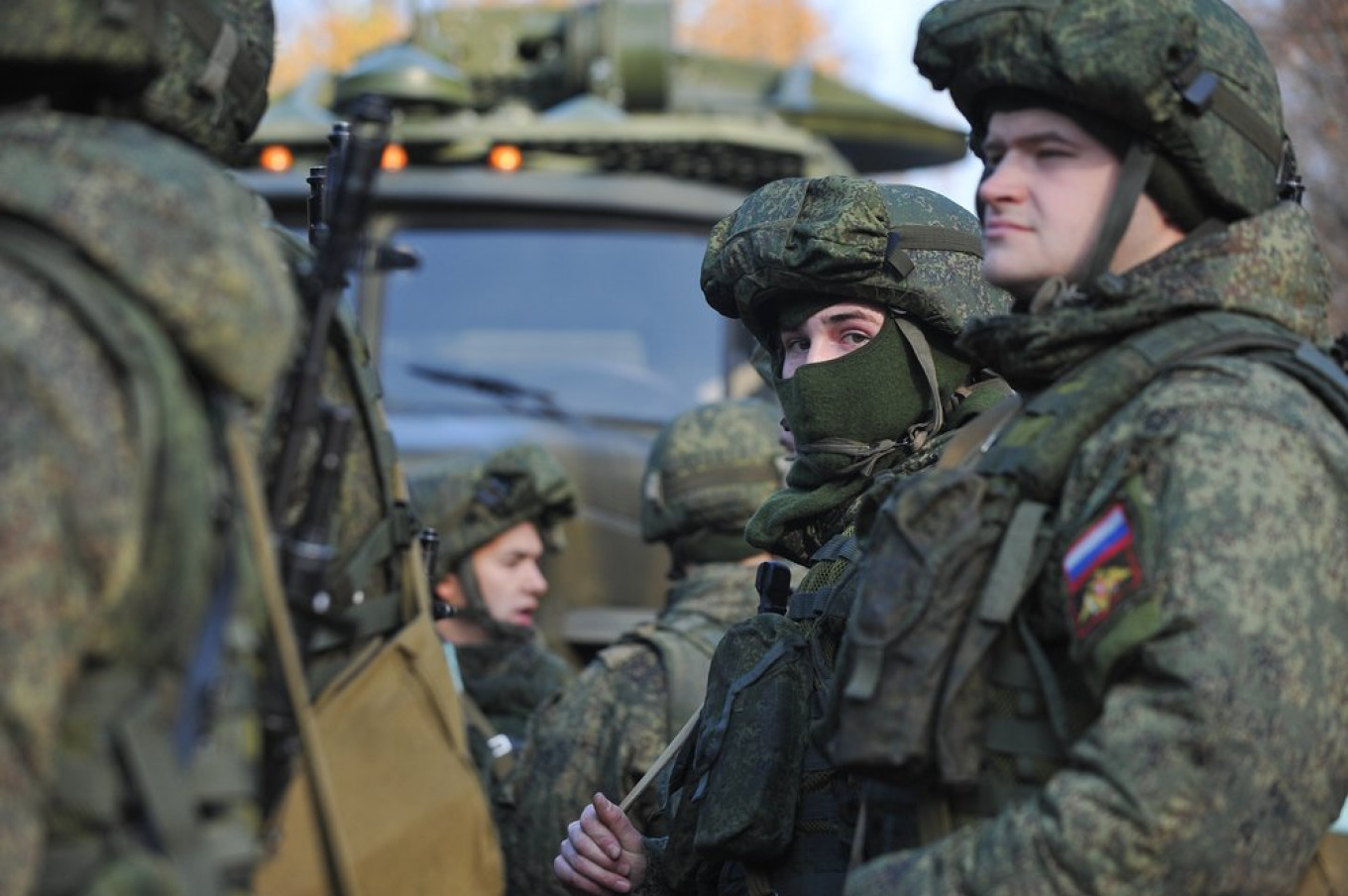
Russia is developing nuclear weapons that the United States does not yet have, a senior officer of the force that oversees the U.S. nuclear arsenal was cited by the state-run TASS news agency as saying Friday.
U.S. Strategic Command deputy commander Vice Adm. Dave Kriete spoke to reporters as the U.S. tested a missile that would have been banned under a bilateral treaty it withdrew from this year. Russia said it was alarmed about the U.S. test of a ground-launched ballistic missile Thursday.
“Russia continues to develop nuclear weapons that the United States does not possess,” TASS quoted Kriete as saying in a Russian-language report from Washington.
“Our goal isn’t to keep up with Russia and engage in an arms race [but to engage] in proper deterrence,” Kriete reportedly said.
The U.S. test was its second such exercise after withdrawing this August from the 1987 Intermediate-Range Nuclear Forces (INF) Treaty that would have banned the missile. Washington withdrew from the INF after accusing Moscow of violating the treaty, a claim the Kremlin has denied.
The Kremlin on Friday criticized the latest U.S. missile test, accusing Washington of preparing to violate the INF treaty in advance.
President Donald Trump said this summer that the U.S. had “more advanced technology” than Russia’s cutting-edge nuclear weapons, specifically referencing a Russian nuclear-powered cruise missile that he suggested exploded during tests on Aug. 8.
The nuclear-powered cruise missile, which Russia calls Burevestnik and NATO designates as Skyfall, was one of a range of new weapons that President Vladimir Putin unveiled last year. These included an underwater nuclear-powered drone and a laser weapon.
Kriete, when asked about another major nuclear arms control treaty between Russia and the U.S. under question, said the Strategic Command was advising the U.S. State Department on the military threats.
New START, the last remaining major nuclear arms control treaty between the two countries, is due to expire in February 2021. Moscow has warned there is already not enough time left to negotiate a full-fledged replacement.
“Stratcom will support any arms control treaty that will ensure our nation’s security. It’s important that all parties to the treaty comply with its provisions,” TASS quoted Kriete as saying.
Reuters contributed reporting to this article.
